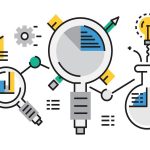Both, Australias Federal Assistant Minister for Industry, Innovation & Science, the Hon Craig Laundy MP, and NSW Minister for Innovation & Better Regulation, the Hon Victor Dominello presented the 'BigInsights Data Innovation Awards 2016' on December 6, 2016, at the University of Sydney. Attended by 150 industry professionals, the BigInsights Data Innovation Awards … [Read more...] about Australian Innovation Shines at BigInsights Data Innovation Awards
Big Data
Learn everything you need to know about big data. Find out how companies are using this revolutionary technology and what it means for your business strategy.
How Is Big Data Helping Humanitarian Crises
The world today is more connected than ever before. 46.1% of the world population are online, thats 3.4 billion internet users. Each of these users typically have 5.54 social media accounts. We generate on average 303 million tweets a day and 60 billion messages a day on Facebook Messenger and WhatsApp. Youll agree these numbers are staggering and were constantly generating and … [Read more...] about How Is Big Data Helping Humanitarian Crises
The Skills and Knowledge You Need to Become a Data Scientist
Want to be part of the countrys hottest new field? Big data is helping businesses all over the world work smarter, not harder, and a lot of people are looking to get in on the action. If youre one of them, then youre probably wondering what kinds of skills and training youll need to land your dream job. Data scientists arent the only players in the big data field, but the … [Read more...] about The Skills and Knowledge You Need to Become a Data Scientist
How Big Data Enables a Successful Implementation of Demonetization in India
On the evening of 8th November, the people of India were on the receiving end of a big surprise a surprise with positive intentions. But it was a big one, nevertheless. The Government of India enacted a policy that made 1000 and 500 notes no longer valid as legal tender money. Just after the announcement, all the ATMs, and cash deposit machines were filled with people either … [Read more...] about How Big Data Enables a Successful Implementation of Demonetization in India
What Has Pok’mon Go Got To Do With Big Data?
Last weekend I went to the park to take my baby daughter for a walk, but I knew that it would be a walk with an extra level of intrigue above the usual cooing, dribbling, and occasional uncontrollable bawling. No, on the previous day I downloaded PokmonGo onto my phone, and although I am far too busy to be down with the kids I was curious enough to see what all this augmented … [Read more...] about What Has Pok’mon Go Got To Do With Big Data?
What is big data?
Big data is a term that refers to the massive amount of digital data created and shared every day. Big data can transform how we live, work, and communicate. It can be used to improve everything from public health and urban planning to business and marketing.
Big data is also changing the way we think about privacy and security. The volume, velocity, and variety of big data present challenges and opportunities for organizations and individuals. Regardless, big data is here to stay, and its impact will only continue to grow in the years to come.
What is big data analytics?
Big data analytics is the process of turning large, complex data sets into actionable insights. Businesses use various analytical tools and techniques, including machine learning and statistical analysis, to do this.
Big data analytics can be used to improve decision-making in areas like marketing, operations, and customer service. It can also be used to identify new business opportunities and optimize existing processes. With the help of big data analysis, businesses can gain a competitive edge by using their data better.
Want to learn more about big data? Datafloq has courses available. Contact us to get started.
When was big data introduced?
The term big data was coined in the 1990s, with some giving credit to John Mashey for popularizing the term. However, the concept of big data has been around for much longer.
Where does big data come from?
In the early days of computing, scientists and businesses began to realize that the amount of data being generated was increasing exponentially. As a result, they began to develop new methods for storing and processing data.
Over time, these methods have become increasingly sophisticated and have played a key role in enabling businesses to make sense of vast amounts of information. Today, big data is used in various industries, from retail to healthcare, and its importance is only likely to grow in the years to come.
What are examples of big data?
One of the most common examples of big data is social media data. With over 2 billion active users, Facebook generates a huge amount of data every day. This includes information on user interactions, posts, and even location data. Analyzing this data can help companies better understand their customers and target their marketing efforts.
Another example of big data is GPS signals. These signals are constantly being generated by devices like cell phones and fitness trackers. When combined with other data sets, GPS signals can be used to provide insights into everything from traffic patterns to human behavior. Finally, weather patterns are another type of big data set. By tracking these patterns over time, scientists can better understand the impact of climate change and develop strategies for mitigating its effects.
How do companies use big data?
Companies use big data in marketing, product development, and customer service. By analyzing large data sets, businesses can identify patterns and trends that would be otherwise difficult to spot. For example, a company might use big data to track customer behavior patterns to improve its marketing efforts.
Alternatively, a company might use big data to improve its products by identifying areas where customers are most likely to experience problems. For instance, big data can be used to improve customer service by finding pain points in the customer journey. Ultimately, big data provides companies with a valuable tool for gaining insights into their business operations.






